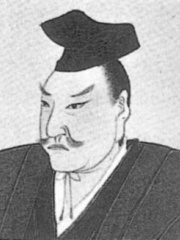
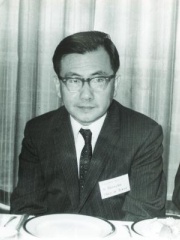
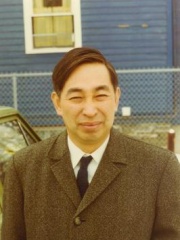
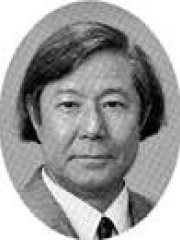
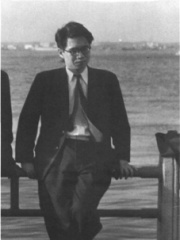

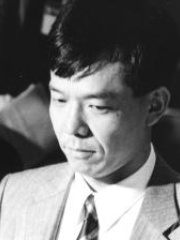

The Most Famous
MATHEMATICIANS from Japan
This page contains a list of the greatest Japanese Mathematicians. The pantheon dataset contains 1,004 Mathematicians, 12 of which were born in Japan. This makes Japan the birth place of the 20th most number of Mathematicians behind Türkiye, and Norway.
Top 10
The following people are considered by Pantheon to be the top 10 most legendary Japanese Mathematicians of all time. This list of famous Japanese Mathematicians is sorted by HPI (Historical Popularity Index), a metric that aggregates information on a biography's online popularity. Visit the rankings page to view the entire list of Japanese Mathematicians.

1. Seki Takakazu (1642 - 1708)
With an HPI of 65.04, Seki Takakazu is the most famous Japanese Mathematician. His biography has been translated into 36 different languages on wikipedia.
Seki Takakazu (関 孝和; c. March 1642 – December 5, 1708), also known as Seki Kōwa (関 孝和), was a mathematician, samurai, and Kofu feudal officer of the early Edo period of Japan. Seki laid foundations for the subsequent development of Japanese mathematics, known as wasan from c. 1870. He has been described as "Japan's Newton". He created a new algebraic notation system and, motivated by astronomical computations, did work on infinitesimal calculus and Diophantine equations. Although he was a contemporary of German polymath mathematician and philosopher Gottfried Leibniz and British polymath physicist and mathematician Isaac Newton, Seki's work was independent. His successors later developed a school dominant in Japanese mathematics until the end of the Edo period. While it is not clear how much of the achievements of wasan are Seki's, since many of them appear only in writings of his pupils, some of the results parallel or anticipate those discovered in Europe. For example, he is credited with the discovery of Bernoulli numbers. The resultant and determinant (the first in 1683, the complete version no later than 1710) are attributed to him. Seki also calculated the value of pi correct to the 10th decimal place, having used what is now called the Aitken's delta-squared process, rediscovered later by Alexander Aitken. Seki was influenced by Japanese mathematics books such as the Jinkōki.

2. Kunihiko Kodaira (1915 - 1997)
With an HPI of 63.95, Kunihiko Kodaira is the 2nd most famous Japanese Mathematician. His biography has been translated into 35 different languages.
Kunihiko Kodaira (小平 邦彦, Kodaira Kunihiko; Japanese pronunciation: [kodaꜜiɾa kɯɲiꜜçi̥ko], 16 March 1915 – 26 July 1997) was a Japanese mathematician known for distinguished work in algebraic geometry and the theory of complex manifolds, and as the founder of the Japanese school of algebraic geometers. He was awarded a Fields Medal in 1954, being the first Japanese national to receive this honour.

3. Kiyosi Itô (1915 - 2008)
With an HPI of 63.43, Kiyosi Itô is the 3rd most famous Japanese Mathematician. His biography has been translated into 31 different languages.
Kiyosi Itô (伊藤 清, Itō Kiyoshi; Japanese pronunciation: [itoː kiꜜjoɕi], 7 September 1915 – 10 November 2008) was a Japanese mathematician who made fundamental contributions to probability theory, in particular, the theory of stochastic processes. He invented the concept of stochastic integral and stochastic differential equation, and is known as the founder of so-called Itô calculus. He also pioneered the connections between stochastic calculus and differential geometry, known as stochastic differential geometry. He was invited for the International Congress of Mathematicians in Stockholm in 1962. So much were Itô's results useful to financial mathematics that he was sometimes called "the most famous Japanese in Wall Street". Itô was a member of the faculty at University of Kyoto for most of his career and eventually became the director of their Research Institute for Mathematical Sciences. But he also spent multi-year stints at several foreign institutions, the longest of which took place at Cornell University.

4. Heisuke Hironaka (b. 1931)
With an HPI of 61.59, Heisuke Hironaka is the 4th most famous Japanese Mathematician. His biography has been translated into 30 different languages.
Heisuke Hironaka (広中 平祐, Hironaka Heisuke; born April 9, 1931) is a Japanese mathematician who was awarded the Fields Medal in 1970 for his contributions to algebraic geometry.

5. Goro Shimura (1930 - 2019)
With an HPI of 61.40, Goro Shimura is the 5th most famous Japanese Mathematician. His biography has been translated into 28 different languages.
Gorō Shimura (志村 五郎, Shimura Gorō; 23 February 1930 – 3 May 2019) was a Japanese mathematician and Michael Henry Strater Professor Emeritus of Mathematics at Princeton University who worked in number theory, automorphic forms, and arithmetic geometry. He was known for developing the theory of complex multiplication of abelian varieties and Shimura varieties, as well as posing the Taniyama–Shimura conjecture which ultimately led to the proof of Fermat's Last Theorem.

6. Yutaka Taniyama (1927 - 1958)
With an HPI of 61.32, Yutaka Taniyama is the 6th most famous Japanese Mathematician. His biography has been translated into 24 different languages.
Yutaka Taniyama (谷山 豊, Taniyama Yutaka; 12 November 1927 – 17 November 1958) was a Japanese mathematician known for the Taniyama–Shimura conjecture.

7. Mikio Sato (1928 - 2023)
With an HPI of 59.42, Mikio Sato is the 7th most famous Japanese Mathematician. His biography has been translated into 24 different languages.
Mikio Sato (Japanese: 佐藤 幹夫, Hepburn: Satō Mikio; 18 April 1928 – 9 January 2023) was a Japanese mathematician known for founding the fields of algebraic analysis, hyperfunctions, and holonomic quantum fields. He was a professor at the Research Institute for Mathematical Sciences in Kyoto.

8. Shigefumi Mori (b. 1951)
With an HPI of 58.65, Shigefumi Mori is the 8th most famous Japanese Mathematician. His biography has been translated into 33 different languages.
Shigefumi Mori (森 重文, Mori Shigefumi; born February 23, 1951) is a Japanese mathematician, known for his work in algebraic geometry, particularly in relation to the classification of three-folds. He won the Fields Medal in 1990.

9. Kenkichi Iwasawa (1917 - 1998)
With an HPI of 55.65, Kenkichi Iwasawa is the 9th most famous Japanese Mathematician. His biography has been translated into 17 different languages.
Kenkichi Iwasawa (岩澤 健吉 Iwasawa Kenkichi, September 11, 1917 – October 26, 1998) was a Japanese mathematician who is known for his influence on algebraic number theory.

10. Yasumasa Kanada (1948 - 2020)
With an HPI of 53.79, Yasumasa Kanada is the 10th most famous Japanese Mathematician. His biography has been translated into 16 different languages.
Yasumasa Kanada (金田 康正, Kanada Yasumasa; 1949 – 11 February 2020) was a Japanese computer scientist most known for his numerous world records over three decades for calculating digits of π. He set the record 11 of the past 21 times.
People
Pantheon has 12 people classified as Japanese mathematicians born between 1642 and 1969. Of these 12, 3 (25.00%) of them are still alive today. The most famous living Japanese mathematicians include Heisuke Hironaka, Shigefumi Mori, and Shinichi Mochizuki. The most famous deceased Japanese mathematicians include Seki Takakazu, Kunihiko Kodaira, and Kiyosi Itô.
Living Japanese Mathematicians
Go to all RankingsHeisuke Hironaka
1931 - Present
HPI: 61.59
Shigefumi Mori
1951 - Present
HPI: 58.65
Shinichi Mochizuki
1969 - Present
HPI: 53.56
Deceased Japanese Mathematicians
Go to all RankingsSeki Takakazu
1642 - 1708
HPI: 65.04
Kunihiko Kodaira
1915 - 1997
HPI: 63.95
Kiyosi Itô
1915 - 2008
HPI: 63.43
Goro Shimura
1930 - 2019
HPI: 61.40
Yutaka Taniyama
1927 - 1958
HPI: 61.32
Mikio Sato
1928 - 2023
HPI: 59.42
Kenkichi Iwasawa
1917 - 1998
HPI: 55.65
Yasumasa Kanada
1948 - 2020
HPI: 53.79
Christopher Zeeman
1925 - 2016
HPI: 51.07
Overlapping Lives
Which Mathematicians were alive at the same time? This visualization shows the lifespans of the 7 most globally memorable Mathematicians since 1700.



